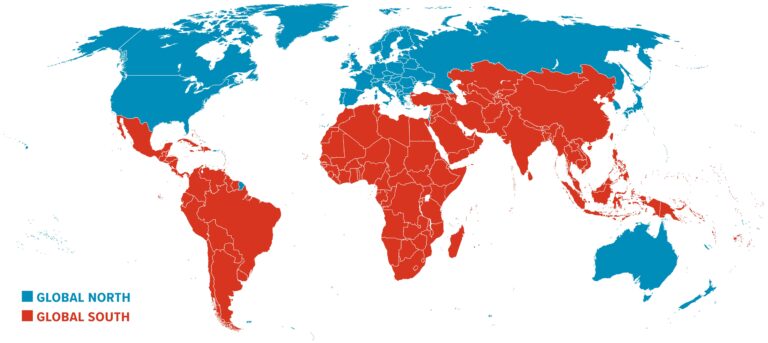
Sophia Gaston
Head of Foreign Policy and UK Resilience
The UK’s departure from the European Union has shaped decisions that both parties have made in their defence and security planning and provision over the past three years. While the foreign policy relationship was kept out of scope of the core Brexit trade negotiations, both the UK and the EU now stand as more sophisticated and empowered security actors than in 2016. This in part reflects the grave deterioration of the global and regional security environment since that time, with Russia’s invasion of Ukraine both an inflection point and symptomatic of a broader geopolitical landscape increasingly less favourable to the interests of established democracies. In a spirit of mutual respect and flexibility, there is now the potential for some green shoots of collaboration on foreign policy and security to be cultivated.
This article summarises a few of the key investments the UK has made in defining its new European role and relationships, the developments and challenges in the EU’s ambitions to become a more credible and cohesive foreign policy actor, and the prospects for formal or informal cooperation in light of the Russian invasion of Ukraine.
Post-Brexit Security Investments
With the EU relationship initially pulled outside of the Foreign Office and managed through the prism of trade negotiations, the UK was compelled to think more creatively about its relationships in Europe and the dynamics on the edges of the neighbourhood. However, this unusual machinery-of-government arrangement was also an obstacle to holistic thinking about its regional role in the round. The repatriation of this portfolio under then-Foreign Secretary Truss unlocked a new phase, facilitating both internal and external conversations that were impossible in the previous status quo. The new UK Prime Minister, Rishi Sunak, has signalled as part of his push to restore stability, that he is keen to move UK-EU relations to a more constructive, less emotive state.
The UK has invested considerably in its security hardware and capabilities in the past few years, with a sizeable defence cash injection in 2021, and an ambition to move towards a 3% of GDP baseline defence commitment. While the headlines around the shake-up of the UK’s armed forces tended to focus on the slimming down of service personnel, the decision to focus on areas of tactical advantage – including the emphasis on cyber and cutting-edge technology – appears to have been vindicated in the UK’s defensive response for Ukraine. The UK has been the leading European state supporting Ukraine, and has moved with a degree of agility and decisiveness that some continental powers have failed to match. The new AUKUS partnership also has the potential to act as a kind of prism through which the patchwork of the UK’s Indo-Pacific “tilt” initiatives can be brought together and understood, and may facilitate its ambition to become the leading European power in this rising security theatre.
The pursuit of bilateral and minilateral forms of cooperation in Europe has defined the UK’s post-Brexit transition, with a particular focus on the Nordic, Baltic, Central and Eastern European nations, as well as other non-EU actors such as Turkey. The UK also appointed a Special Envoy to the Western Balkans in late-2021. While these investments were in many ways compelled by the impasses and tensions in the UK’s more traditional relationships, they were also the product of an astute observation that Russia would continue to menace the European neighbourhood – with implications for the power dynamics in the region. These relationships will continue to provide long-term dividends, although the specific environment which has enabled HMG to pursue this unconventional approach with such success will not necessarily be sustained.
Just as the UK has been forced to reconceptualise its foreign and security policy in recent years, the EU has also accelerated its strategic autonomy and defence capabilities in the aftermath of the UK’s decision to leave. It has begun to intensify planning to enhance its sovereign industrial base, forging new processes and coordinating mechanisms to link up funding, capability gaps and public-private cooperation. Major EU member states, most notably Germany, have also gone through Damascene conversions in the aftermath of Russia’s invasion of Ukraine, to dramatically reconceive their contribution to European security. The EU institutions have not always succeeded in achieving their foreign policy objectives, and many fundamental obstacles remain to the EU’s credibility as a cohesive security actor. Individual member states have also struggled to balance the conflict between their new defence ambitions and their short-term economic interests. Nonetheless, taken alongside initiatives to better leverage the geopolitical might of its successful integrated market, through regulatory leadership, funding instruments and standard-setting, it is clear the EU is at the beginning of a new phase.
Security Cooperation – Barriers and Opportunities
Despite the more positive atmosphere in recent UK-EU relations, a formal security arrangement is unlikely to be pursued in the short-term. A new accord will need to strike the balance between the EU’s penchant for formality and procedure, and the UK’s new instinct for agility and flexibility. It is also true, however, that the longer any cooperation remains undefined, the greater the risk that both sides will take decisions that sharpen their position as competitors and heighten the obstacles to collaboration.
A clear example of this would be defence industrial collaboration. The UK is rightly recognised as a leading European player in the research, design, development and production of defensive hardware and instruments, as well as an outstanding defence training provider – a skillset currently being harnessed to train thousands of soldiers for the defence of Ukraine. Yet, even with a vibrant domestic defence industry, the UK cannot produce the full scope of its weapons systems at home. The gap has traditionally been filled through collaboration with the United States, and while the ‘special relationship’ remains vital and deep, there have at times been issues linked to our status as a very much junior partner. As the EU begins to invest in its defence procurement structures, there is a risk that these initiatives restructure the European defence market in a way that fundamentally excludes and disadvantages non-EU partners that can make important contributions.
The EU has set up three key instruments to facilitate its growth as a security actor: the European Defence Fund (EDF), a financial mechanism led by the Commission to support member states jointly funding defence capabilities; the Coordinated Annual Review on Defence process, which seeks to match member states and capability gaps; and the Permanent Structured Co-operation (PESCO) framework to support the joint planning, development and deployment of security capabilities. The UK has begun to express a degree of openness to participating in PESCO, although the issues it has previously raised pertaining to intellectual property, export controls and other elements of the PESCO design have not been resolved. It also remains to be seen whether the next EDF financial allocations will avoid the salami-slicing of previous budgetary negotiation rounds, with the pandemic having dramatically reduced the 2021 funding pool.
One factor that will undoubtedly affect the decisions Britain takes on PESCO participation is the interest being demonstrated in the framework by the United States, which is also supporting the alignment of PESCO projects with NATO priorities. The UK should be confident about its position in NATO, having cemented its role as the leading European power in the Alliance in its vigorous response to the invasion of Ukraine. It is a positive development for greater strategic integration between EU and NATO defence projects to be achieved, but further alignment must also protect the balanced distribution of agency amongst members – not only for the interests of the UK, but to maintain the buy-in of other crucial non-EU members, such as Turkey.
The Impact of the Invasion of Ukraine
The UK would have played a major role in Ukraine’s defence if it had still been a member of the European Union. But it is also true that the new thinking that Brexit compelled about the UK’s regional relationships and the nation’s “value-add” in the European security theatre sharpened and accelerated its response to the invasion. The UK’s response has been driven by the clarity of both its security logic and its geopolitical values, which were defined in part through the self-reflection induced by the Integrated Review process.
The conflict in Ukraine has already reshaped the UK-EU relationship, and will continue to do as we move into its future stages. The UK and the EU have worked together in productive cooperation in the application of sanctions towards the Russian state and the Putin regime. There has also been coordination around the provision and in-flow of weapons and other vital infrastructure. This cooperation has taken place through bilateral relationships, new minilateral partnerships, and with the EU institutions via key forums such as NATO and the G7. It is important to recognise this collaborative atmosphere as meaningful and marking a clear step change in the UK’s post-Brexit European engagement. However, there is nothing inherently deterministic about this shift in gears, and there will need to be concerted political and institutional efforts to guide the next phase of interaction.
One clear challenge is the divergence in the assessments that were made around the intelligence pertaining to the probability of Russia launching a (further) military invasion of Ukraine. While many reasonable criticisms can be made about the naivety of successive UK governments towards the Russian elite’s integration into Britain’s legal and financial systems over the past two decades, both Westminster and Washington drew the right conclusions in late-2021 about Russia’s intentions, when many European capitals did not. Their distinct calculations towards Russia have been reflected in institutional culture, affecting choices in both the public and private sectors regarding energy provision, supply chains, and diplomatic relations. Most notably, Germany’s decision to abandon its nuclear power capabilities in favour of greater dependence on Russian gas.
Russia’s invasion of Ukraine in February has undoubtedly served as a wake-up call, prompting dramatic volte-faces in many EU member states. But few have fully resolved the complexities of their relationships with this authoritarian power, which continues to wield influence over many areas of Europe’s critical national infrastructure. The different perspectives on the risks Russia poses to regional security and the most appropriate means of diplomatic engagement continue to inform the distinct views in the European community about the measures of success that should be defined in the Ukraine conflict. It will be difficult to agree on a framework of European foreign policy and security cooperation when such idiosyncratic instincts prevail about the nature and severity of risks posed by our strategic rivals. In a period in in which revisionist powers are seeking to expose and sew discord in democratic alliances, and consensus is needed to underpin agile and robust responses, this becomes a very urgent question.
In the medium-term, both the UK and the EU will play special roles in guiding Ukraine to a new state of being. The UK has been asked by the Ukrainian government to play an important role in the country’s reconstruction, and has already accepted responsibility for coordinating the rehabilitation of Kyiv and its surrounds. The EU’s membership process will determine many aspects of Ukraine’s economic and legal future, as well as its security relationship with the bloc. It may well be that the radical conversations that will need to take place around Ukraine’s special status with the EU will unlock new creativity in conceptualising the UK’s own role as a third country of particular significance.
Reframing the Security Relationship
The rapidly evolving geopolitical landscape has necessitated advanced democracies becoming more attuned to national security and a more expansive understanding of what this entails. Whole-of-government and whole-of-society approaches to resilience have brought many areas outside of the traditional purview of defence into the spotlight, and understanding the interactions between these will only become more essential. The conception of ‘security’ has evolved dramatically in the six-and-a-half years since the UK voted to leave the European Union, and this means the nature of the security relationship will also need to be reframed. The Russian invasion of Ukraine has reinforced the importance of traditional defence capabilities, but issues relating to supply chains, energy provision, cyber warfare, economic stability and coercion, have all become more central to debates around security infrastructure.
The broadening of the scope of resilience planning presents new ground for cooperation to be established between the UK and the EU, and renders forums such as the European Political Community more relevant and responsive to domestic political environments. While the space imposed thus far between the UK-EU trade negotiations and security conversations may have in fact better highlighted the areas of opportunity, both sides are now reaching a stage in which decisions they take to strengthen sovereign capabilities may create new obstacles to future collaboration. For this reason, it is important that space and time is given to conversations that focus minds on areas of common purpose and intent.
The recent decision by the UK to attend the first European Political Community meeting in Prague was a concrete example of interest alignment producing mutually beneficial outcomes. It would not have been credible for the EPC to be held without the UK’s presence, and it would have disadvantaged the UK to not have a seat at the table in a new post-Brexit European initiative. The interest areas the UK defined ahead of the meeting indicates a rich mix of themes pertaining to our shared geography and interests on which to forge cross-regional collaboration. The EPC has some way to travel in defining its scope and function, but it has highlighted plenty of fertile ground for future conversations.
In navigating an increasingly complex and hostile security landscape, the UK will need to continue to develop a wide range of productive relationships in the European neighbourhood, to complement our established partnerships with critical allies such as the United States. Collaboration on security matters will require the UK acknowledging the EU’s progress and potential towards becoming a viable geopolitical actor, even if this mission is liable to germinate some areas of competition in the medium-term. Equally, the EU must demonstrate more flexibility and respect to the UK as a special third nation, whose vital security and diplomatic contribution has been made self-evident. It is not sustainable nor desirable for the UK and the EU institutions to talk past or seek to sideline one another. While there is much at stake in other burgeoning strategic theatres such as the Indo-Pacific, Russia’s invasion of Ukraine has highlighted the importance of investments in our fundamental defences much closer to home.
Europe remains a rich tapestry of cultures, which may at times compel different instincts. As revisionist powers seek to subvert peace, prosperity and sovereignty, modern democracies must focus on the common interests they share and step up to collectively defend them. We may not always see eye-to-eye on every issue, but in the existential battle for the liberal world order that will characterise this century, Britain and its European neighbours will need to stand firmly on the same side.


